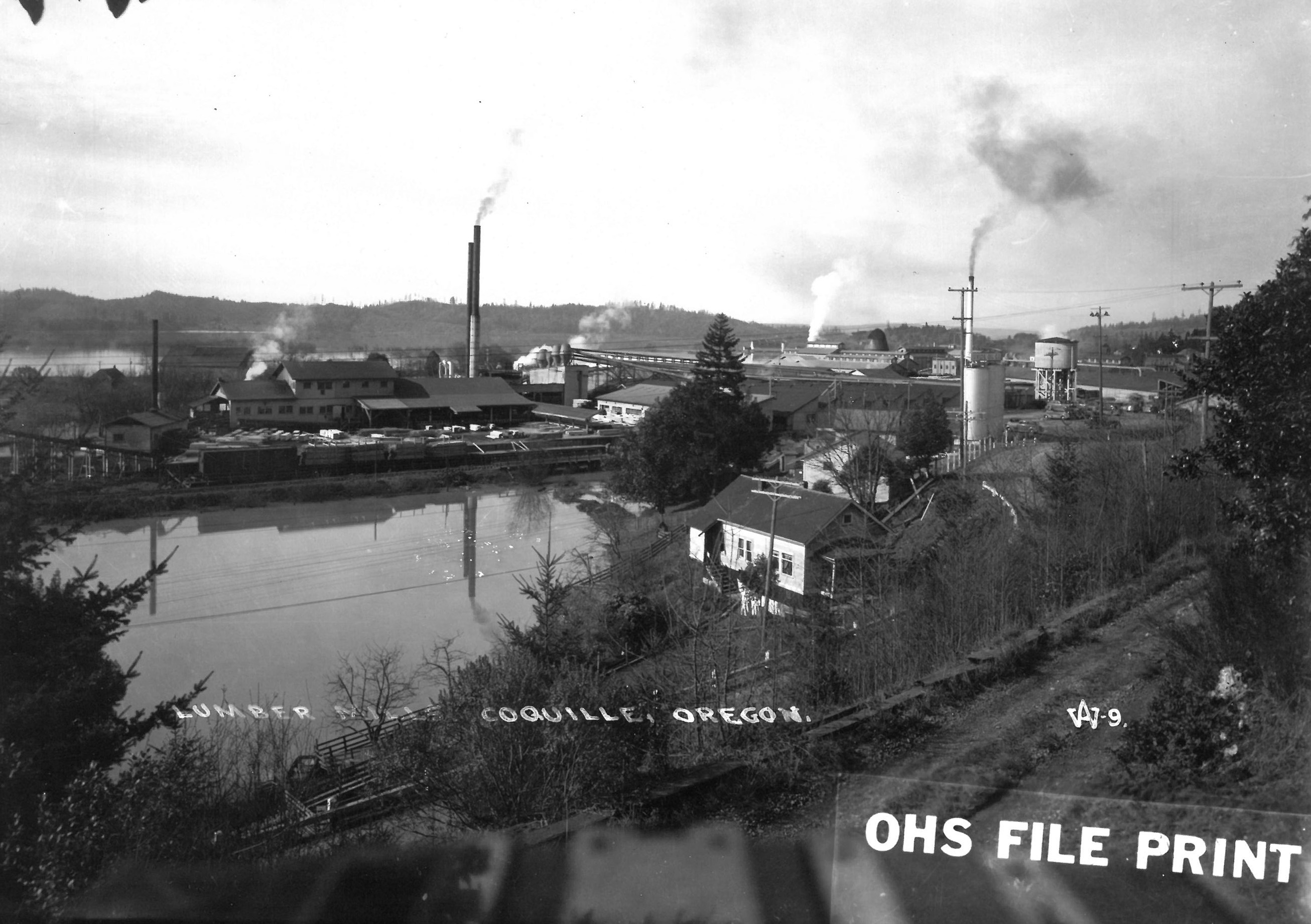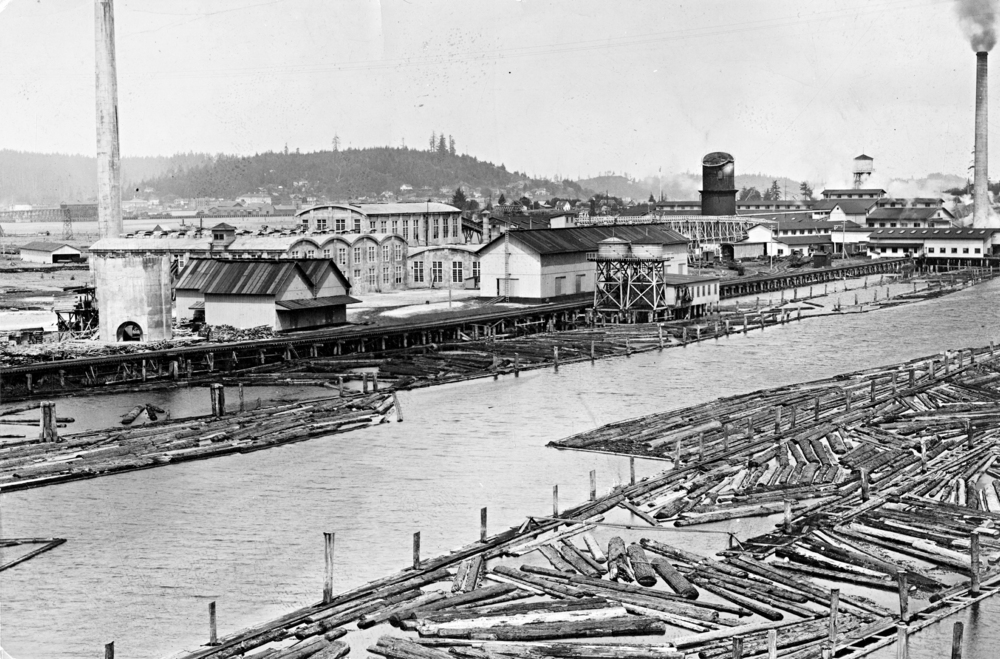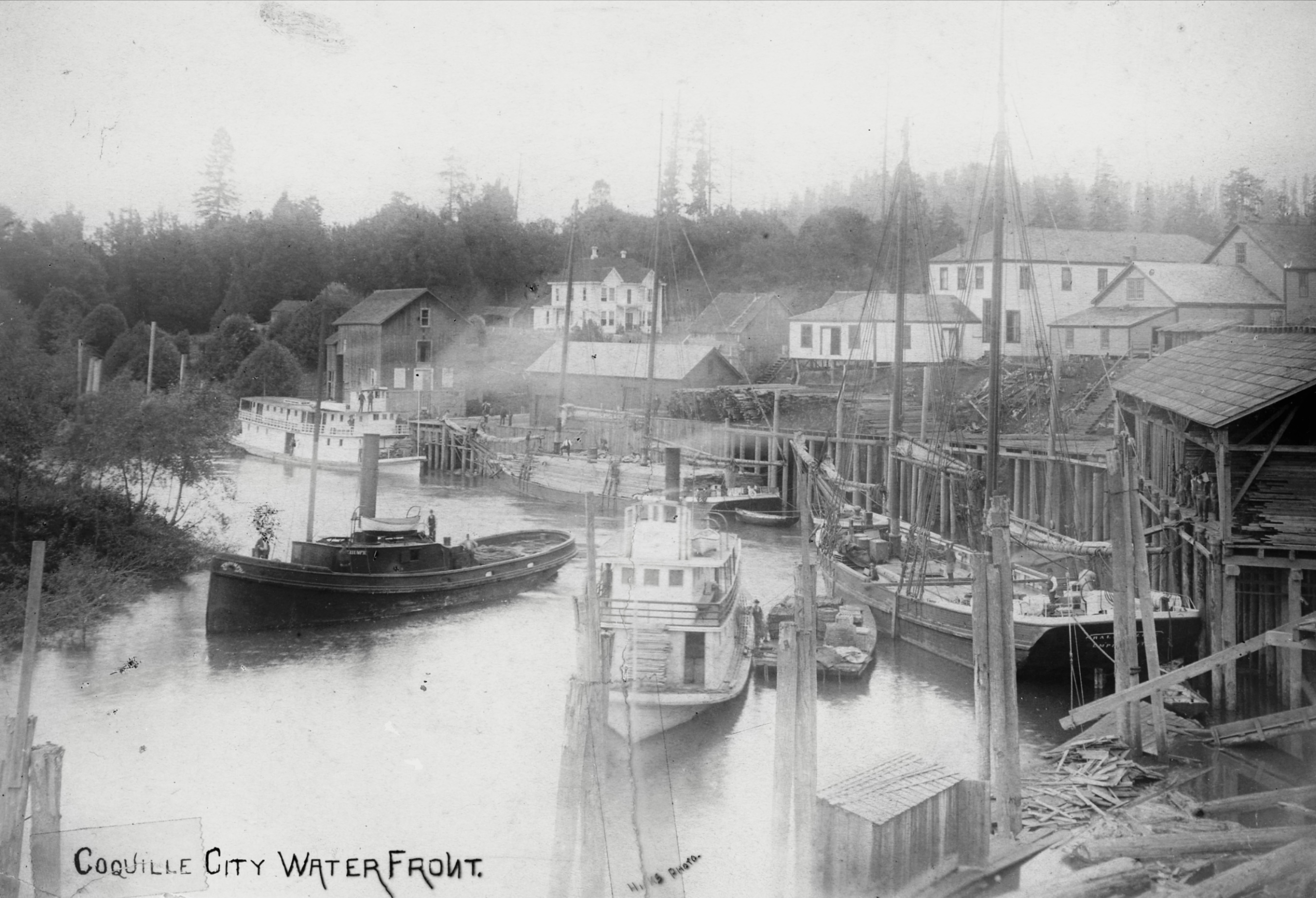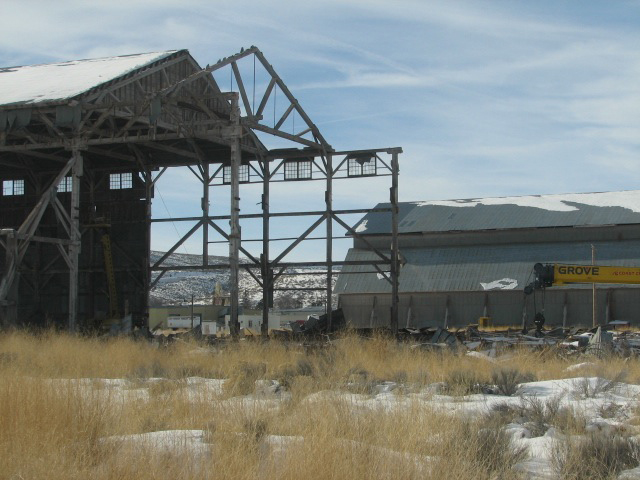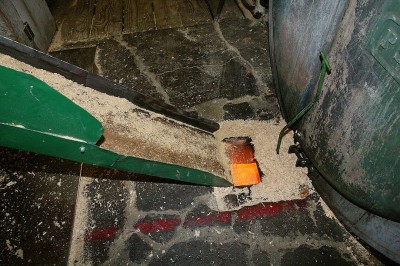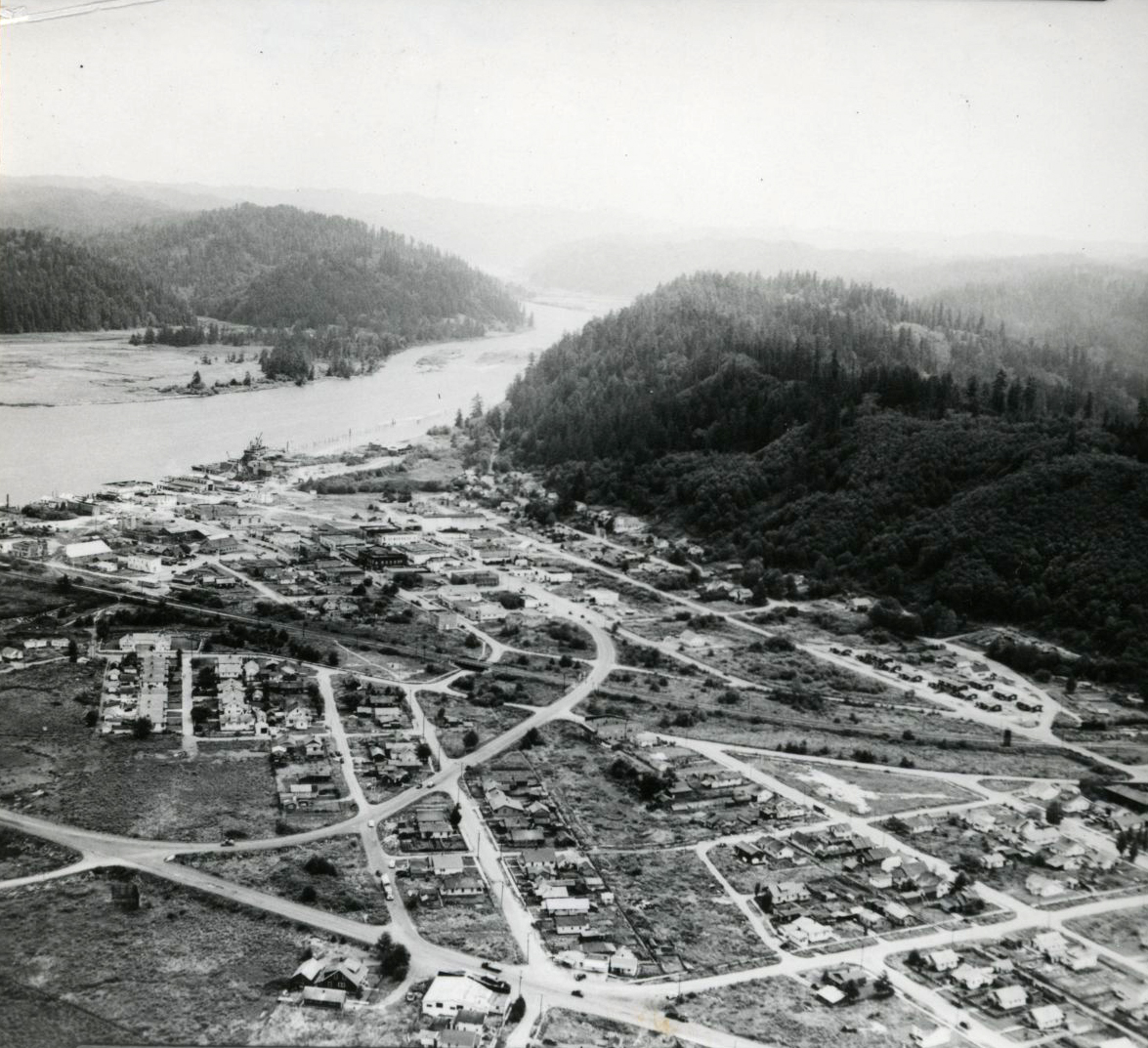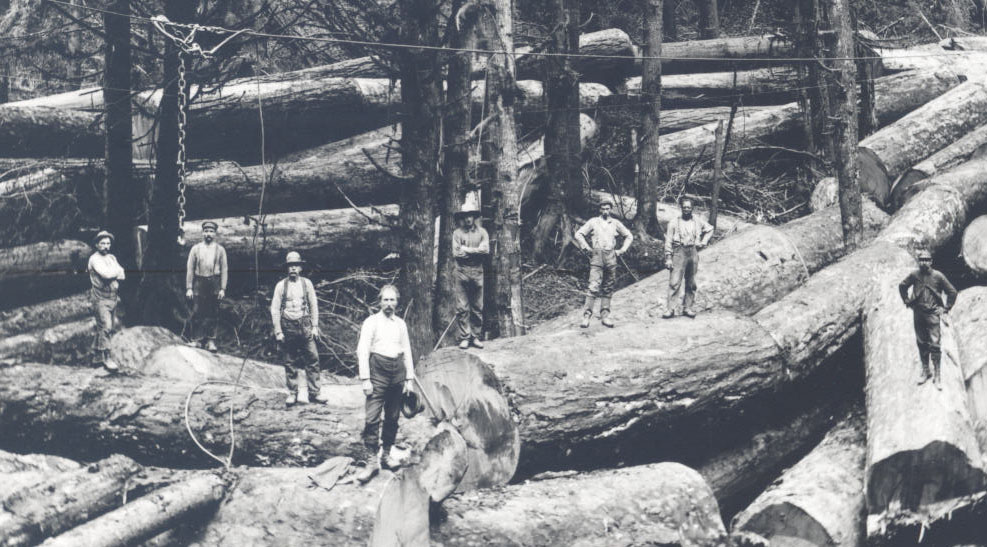Founded by Kenneth Ford in 1936, Roseburg Lumber Company began as a sawmill with salvaged equipment and twenty-five employees. Today, Roseburg Forest Products Company is among the largest family-held wood products companies in the United States.
In addition to its Oregon facilities in Dillard, Myrtle Creek, Reedsport, Riddle, North Bend, and Coquille, Roseburg Forest Products owns plants in South Carolina, California, Mississippi, Missouri, Montana, Georgia, and Minnesota and employs more than 4,000 people. Its initial growth addressed the huge demand for timber products during World War II and the postwar construction boom by building new plants and acquiring new companies. By building capacity, focusing on efficiency, and using new technologies, the company has met the challenges that have beset the industry in recent years.
Kenneth Ford was born in Asotin, Washington, in 1908, and moved to Oregon as a child. He attended Oregon State Agricultural College but left after a semester to work with his lumberman father and, shortly, to begin his own company. Industry observers credit the success of Roseburg Forest Products to his practice of "thinking twenty years into the future."
Ford's interest in equipment advancements and his skill in improving that equipment gave the company the advantage of modern machinery. Over the years, Roseburg developed the broadest mix of products in the industry. Recognizing the potential of plywood, for example, Ford built the first of many plywood plants in 1953. The Japanese paper industry's demand for wood chips during the 1960s presented the opportunity to build a long-term partnership with the OJI Paper Company of Japan.
Ford anticipated the energy shortage of the 1970s by building a boiler plant to turn timber manufacturing waste into energy. Faced with the rising price of logs, the company focused on increasing the yield from a log, eventually by more than 50 percent. Even during down times for the industry, Ford bought up timberland to sustain his company into the future. As a result, Roseburg Forest Products has outlived many of its competitors who depended on federal timber sales and closed when that resource was no longer available. The company now manages 750,000 acres of timberland in Oregon and northern California. After Kenneth Ford died in 1997, leadership of the Roseburg Forest Products and the Ford Family Foundation passed to his son Allyn Ford.
In 1996, Ford established the Ford Family Foundation, one of the largest charitable organizations in Oregon. With its focus on the needs of the communities where its plants are located, the foundation has awarded grants to K-12 schools and higher education, to health-care facilities, and to social service organizations. Grants to Doernbecher Children's Hospital, the Oregon Museum of Science and Industry, the Oregon Independent College Foundation, United Way, and the Salvation Army have had a statewide impact. The foundation's interest in education is evident in its Ford Scholars Program, which covers up to 90 percent of tuition and other expenses for selected students who need financial assistance to attend college.
-
![]()
Lumber mills, Coquille, Oregon.
Oregon Historical Society Research Library, ba0122806, PF 283A
Related Entries
-
![C.A. Smith Lumber Company]()
C.A. Smith Lumber Company
Charles Axel Smith became, for a time, one of Oregon's most powerful lu…
-
![Coquille]()
Coquille
The city of Coquille (pronounced ko-KEEL), a wood-products manufacturin…
-
Hines and the Edward Hines Lumber Company
In the mid-1920s, large sawmill owners in the United States found a new…
-
![Hull-Oakes Lumber Company and mill]()
Hull-Oakes Lumber Company and mill
The historic steam-powered sawmill complex of the Hull-Oakes Lumber Com…
-
![Oregon-American Lumber Company]()
Oregon-American Lumber Company
The Oregon-American Lumber Company (1917-1934) and its successors—the O…
-
![Reedsport]()
Reedsport
In many ways, the story of Reedsport is a microcosm of the story of Ore…
-
![Timber Industry]()
Timber Industry
Since the 1880s, long before the mythical Paul Bunyan roamed the Northw…
Map This on the Oregon History WayFinder
The Oregon History Wayfinder is an interactive map that identifies significant places, people, and events in Oregon history.
Further Reading
"Kenneth W. Ford," Roseburg Woodsman, May 1997.
"VIP," Oregon Business, October, 2006.
Beckham, Stephen Dow. Land of the Umpqua: A History of Douglas County, Oregon. Roseburg, Ore.: Douglas County Commissioners, 1986.

